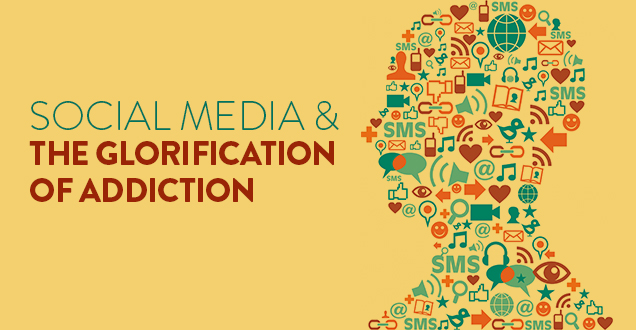
The Twenty-First Century Face of Substance Abuse
An addiction may start out as an isolated incident, often something to try out with friends. Unfortunately, for many, those few hours of a high can turn into a compulsion to use regularly. This compulsion and activities revolving around it can eventually negatively interferes with jobs, relationships, and/or health.
The Link Between Addiction and Social Media
A study out of the University of Albany found that not only is social media potentially addictive on its own, but that an addiction to social media may be linked to impulse control issues that contribute to substance abuse problems.
Social Media Lets the Good Times Roll
Statistics regarding teens, social networking sites, and substance abuse are startling:
- 40% had viewed pictures on social media depicting teens and adolescents drinking, passed out, or using drugs
- 50% of viewers saw such images when they were 13 or younger
- 90% first viewed the photos when they were 15 or younger
- Teens who viewed pictures on social media depicting substance abuse were at a higher risk to abuse substances:
- Three times more likely to use alcohol
- Four times more likely to obtain and/or use marijuana
- Close to three times more likely to have controlled prescription drugs without a prescription
Social Media Posting Motivations
Posting details of personal overindulgences on social media may indicate a higher clinical risk of developing drinking problems, according to a University of Wisconsin-Madison study. It must also be noted that many people exhibit incredibly poor judgment when posting things on social media, even without the influence of some mind altering substances. Often, it is a matter of poor impulse control, or a desire to look “cool” and fit in. Even though poor impulse control is a symptom of the disease, there is far more to it than just that.
The personal relationships forged through social media differ greatly from those made in real life. They offer much less connection for young people and if there is connection, it is for the wrong reasons. Young adults want to be important, or in the words of some made, “famous” through their social media exploits. In many ways social media is a form of social climbing, in an attempt to fit in. A big part of fitting in is glorifying partying and questionable behavior. More “likes” mean more “fame.” Part of the expected behavior is the shock and awe factor. Not participating leads to FOMO—fear of missing out.
The Negatives of Social Media Depicting Substance Abuse
College students who post the details of their drunken nights on Facebook can end up with a few problems on their hands – embarrassment, regret, or explanations to parents and/or school officials. They may also pay the price after graduation. Many prospective employers check out social media sites for details on applicants, and are often not pleased with what they see. Beyond the noted consequences, the individual may end up with a lifelong addiction problem.
Challenging Grotesque Online Glorification
Former U.S. Secretary of Health, Education, and Welfare Joseph A. Califano, Jr. has strong words for social networking sites:
“The relationship of social networking site images of kids drunk, passed out, or using drugs…to increased teen risk of substance abuse offers grotesque confirmation of the adage that a picture is worth a thousand words…
The time has come for those who operate and profit from social networking sites like Facebook to deploy their technological expertise to curb such images and to deny use of their sites to children and teens who post pictures of themselves and their friends drunk, passed out or using drugs. Continuing to provide the electronic vehicle for transmitting such images constitutes electronic child abuse.”
Using Social Media as a Wake up Call
Most families are shocked and dismayed after discovering social media posts depicting a loved one in a compromising situation involving some type of substance abuse. Families may use these images as a way to help a loved one understand they have a problem, when they would otherwise be in denial of addiction issues. For some, those embarrassing posts become a tool in helping them early in recovery, eventually achieving sobriety.




